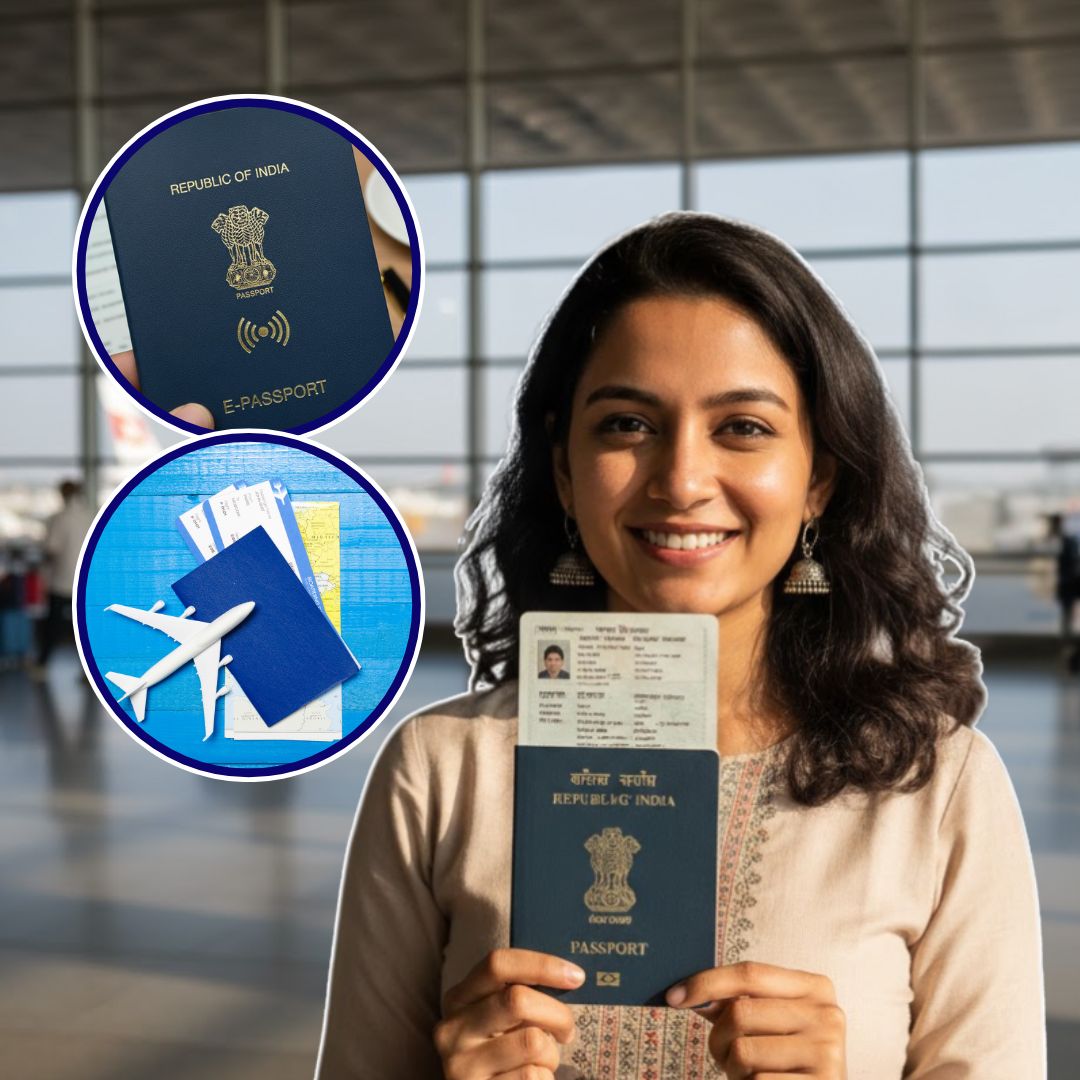India has launched next-generation e-passports embedded with cutting-edge security to combat forgery and impersonation. These e-passports feature embedded Radio Frequency Identification (RFID) chips with antennas, storing encrypted biometric data such as fingerprints, facial photographs, and iris scans.
The chips comply with International Civil Aviation Organization (ICAO) standards and use Public Key Infrastructure (PKI) digital signatures, making them extremely resistant to tampering and duplication. The contactless technology allows faster and more reliable verification at immigration gates by matching live data with the chip-stored biometrics, drastically reducing fraud risks.
Additionally, new passports come with interlocking microletters, relief tints, and computer-readable barcodes that enhance visual security and data verification without compromising privacy. The residence address section has been removed from passports, replaced by computer-readable barcodes to protect personal data from misuse.
Passport Seva Programme Version 2.0
The rollout of these biometric e-passports is part of the upgraded Passport Seva Programme 2.0, launched nationwide by May 2025 across 37 Regional Passport Offices and 544 Passport Seva Kendras.
The revamped system leverages artificial intelligence through chatbots and voicebots to assist applicants and resolve grievances efficiently while offering features like online document submission, facial recognition, and automated form filling. Integrated with national identity databases such as Aadhaar, PAN, and DigiLocker, the system ensures seamless and secure document verification.
Robotic Process Automation accelerates the validation process, and a National Call Centre operating in 17 regional languages provides citizen support. So far, more than 80 lakh e-passports have been issued domestically, with over 60,000 issued abroad via Indian missions. Senior officials from the Ministry of External Affairs highlight that the upgraded system flags any attempt at obtaining multiple passports by the same individual, strengthening fraud detection and prevention.
How to Apply
Applying for the new e-passport is streamlined through the upgraded Passport Seva Programme 2.0 platform, which includes a redesigned website and mobile app. Applicants can benefit from features such as auto-filled forms, easy document uploads, and payment options via UPI or QR codes, making the process convenient and fast. AI-powered chatbots and voicebots offer real-time assistance, guiding users through application steps and addressing grievances.
The system is integrated with national identity databases like Aadhaar and DigiLocker to facilitate seamless and secure verification of documents. Applicants can book appointments, track their application status, and receive updates digitally, reducing the need for physical visits.
For existing passport holders, their current non-electronic passports will remain valid until their expiry dates, and there is no immediate requirement to replace them with the new e-passports. However, all new applicants and those renewing their passports from May 28, 2025, onward will receive the upgraded next-generation e-passports embedded with advanced security features.
Background and Implementation
India began pilot testing e-passports in 2024, expanding into full-scale operation by mid-2025. The full transition to 100% e-passports is targeted by June 2035. The Passport Seva Programme 2.0 is anchored by three robust data centres in Noida, Chennai, and Bengaluru to ensure security and threat management.
This expansion marks India’s alignment with over 120 countries already issuing biometric e-passports, including the US, Canada, Japan, and Australia. The initiative also reflects a commitment to data privacy and protection in the digital age, especially by removing residential addresses from passports.
These efforts cater not only to increasing travel convenience and international compliance but also to safeguarding citizens’ personal information amidst rising concerns about identity theft and misuse.
The Logical Indian’s Perspective
India’s adoption of advanced biometric e-passports is a commendable stride toward embracing innovation, safeguarding identities, and enhancing global mobility for its citizens. The integration of AI and digital technologies underscores a commitment to transparency, efficiency, and security.
However, the growth of digital identity systems invites careful attention to privacy, inclusivity, and equitable access, ensuring these tools do not disproportionately disadvantage any community or infringe on civil liberties. It is vital that technology evolves hand-in-hand with robust data protection laws and citizen awareness.













